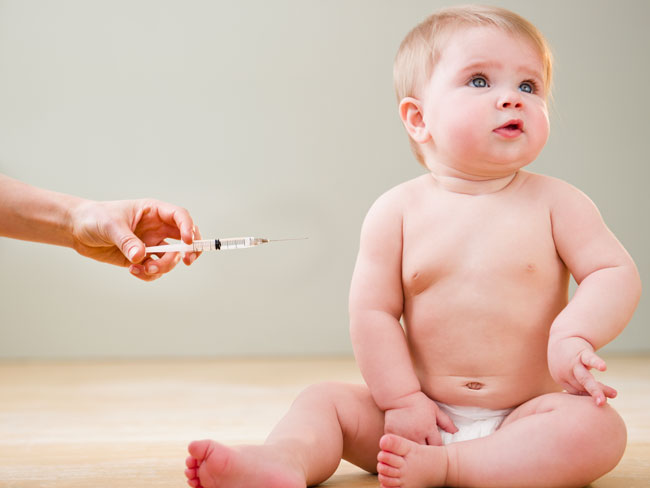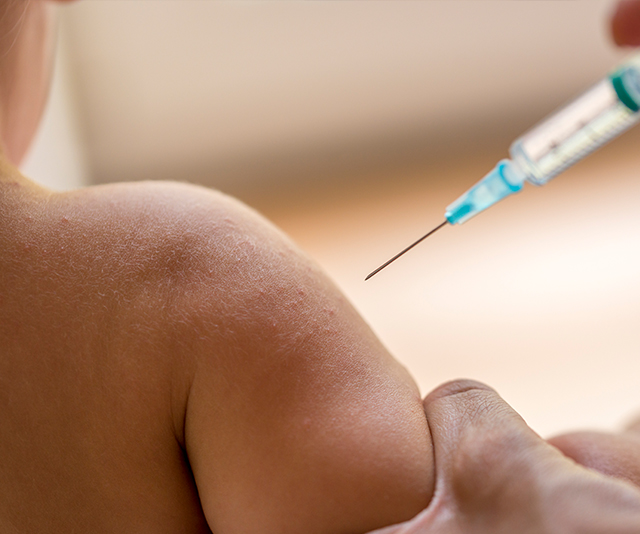Meningococcal disease is once again making headlines as news breaks that a seven-month-old baby girl from rural SA who was rushed to hospital with a case of meningococcal B, considered critical, is now on the mend.
Hers is one of 17 cases of meningococcal disease reported in SA alone so far this year.
Being winter, we are now in one of the higher risk periods for the invasive bacterial infection, which combined with a global vaccine shortage has parents concerned.
Further reports from Tasmania, confirm that on Thursday, a teenager lost her life after complications from the aggressive disease.
Tasmanian health authorities were advised of the young girl’s death after laboratory tests showed evidence of the disease.
Antibiotics have been given to the small number of people that were in close contact with the girl.
What’s happened to the vaccine?
Right now protection from the C-strain of the disease is provided under the National Immunisation Program (NIP). In addition, all South Australian children under the age of four will receive the B vaccine free from October.
MENVEO – which is not available on the NIP – is a vaccine used for the ACWY strains and available as a private prescription only, however right now there is a national shortage.
Pharmaceutical vaccine supplier, GlaxoSmithKline has confirmed on its website that it’s “experiencing a supply shortage and is currently out of stock.”
“The supply constraint is due to a manufacturing disruption combined with high demand … we expect the supply situation to normalise in 2019,” the statement reads.
What exactly is meningococcal?
The disease itself is actually quite rare. The danger it presents comes from how fast acting, and how devastating it is when it does strike.
Meningococcal Australia is a great resource for families and best describes meningococcal as:
Meningococcal disease is an acute bacterial infection that can cause death within hours if not recognised and treated in time.
The meningococcal bacteria are spread through droplets from the nose or throat through sneezing or coughing.
In Australia there are 5 main strains of the disease, all of which now have vaccinations available from your doctor when supplies allow. *Note that the C-strain vaccine available through Australia’s free National Immunisation Program (for children 12 months of age) does NOT protect against all strains of the disease.
Although the majority of victims will recover fully, 10 percent of those infected will die, and around 20 percent will have permanent disabilities – ranging from learning difficulties, sight and hearing problems, to liver and kidney failure, loss of fingers, toes and limbs and scarring caused by skin grafts.
One of the reasons meningococcal disease is hard to identify is that it can appear in several different forms, depending on which part of the body the bacteria invade: meningitis (affecting the brain and spinal cord) or septicaemia (affecting the blood), or a combination of both.
It is not actually that easy to catch meningococcal disease. While the bacteria is spread via droplets from the nose or throat during coughing and sneezing, close and prolonged contact with a person who has the bacteria in their nose or throat is usually needed for the bacteria to spread.
Who is at risk of meningococcal?
Meningococcal disease does not discriminate, it can strike babies, children and adults – anywhere, at any time.
According to Meningococcal Australia, those most at risk are:
Babies and children up to the age of five years – this group accounts for two thirds of cases (due to their less mature immune system and tendency to put things in their mouth and share food, drink and toys).
Teenagers and young adults from 15 to 24 years – primarily because of the socially interactive lifestyle they lead, which is more likely to involve intimate activities such as kissing and sharing drinks.
The viruses around during winter and early spring can impact our natural immune systems, meaning that right now is a peak time for the spread of meningococcal.

